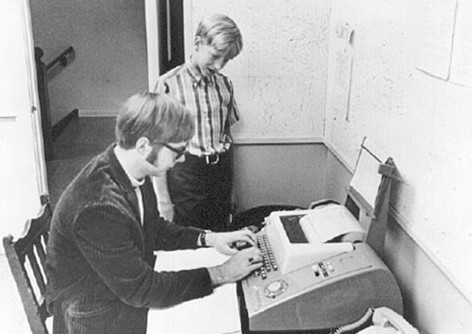A highly automated society needs coders until there is a critical mass of code and then the machines can take over. Whither will the high-tech worker go? From Victoria Stilwell at Bloomberg:
Have you ever worried that robots would one day be the ruin of humanity? According to a newly published paper, you might not be too far off base.
Four researchers from Boston University and Columbia University simulated an economy featuring two types of workers – high-tech employees who produce new software code, and low-tech workers who produce human services (people such as artists, priests, psychologists and the like).
At first, high demand for code-writing high-tech employees increases their wages. However, over time, the amount of legacy code grows. As this happens, and as some smart machines become better able to learn tasks, writing new code becomes redundant, the authors state.
Demand for code-writing high-tech workers then becomes limited to those who are needed for general code maintenance like updates and repairs. The rest of the high-tech workers end up going into the service sector, which consequently pushes down wages for employees in that industry. And lower incomes reduce the amount of goods and services that workers are able to buy.
While there can be several of these so-called “boom-bust” tech cycles, over time robots “can leave all future high-tech workers and, potentially, all future low-tech workers worse off,” the paper states. “In short, when smart machines replace people, they eventually bite the hands of those that finance them.”•
Tags: Guillermo LaGarda, Jeffrey D. Sachs, Laurence J. Kotlikoff, Seth G. Benzell, Victoria Stilwell

